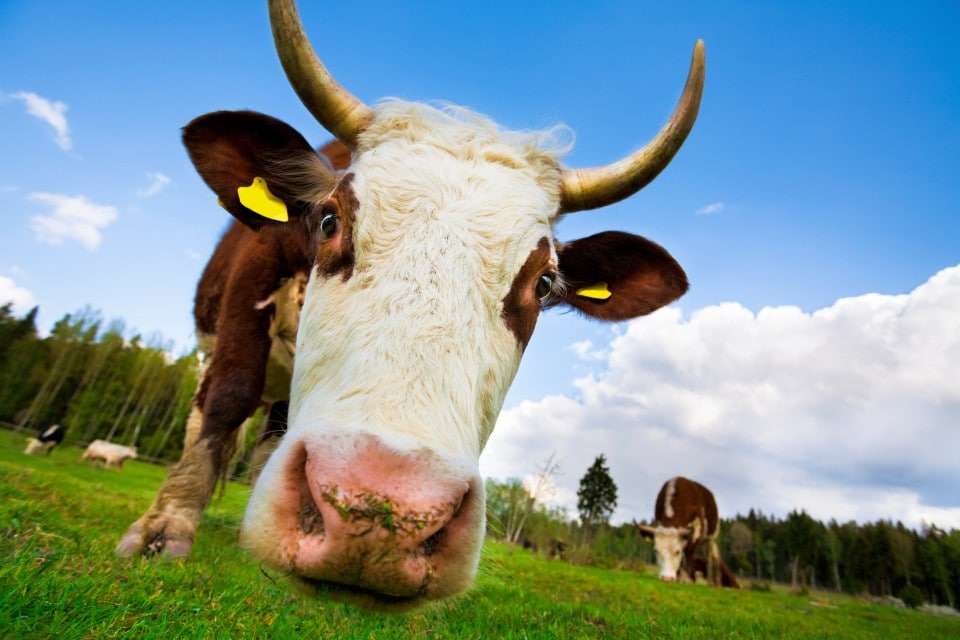The Volokh Conspiracy
Mostly law professors | Sometimes contrarian | Often libertarian | Always independent
OK to call skim milk 'skim milk'

In that infernal nonsense Pinafore, Buttercup sings:
Things are seldom what they seem,
Skim milk masquerades as cream;
Highlows pass as patent leathers;
Jackdaws strut in peacock's feathers.Captain. (puzzled)
Very true,
So they do.
But in Florida, skim milk is masquerading as skim milk - and the Florida commissioner of agriculture as well as the Florida Bureau of Dairy Industry just can't stand it.
As yesterday's 11th Circuit decision in Ocheesee Creamery LLC v. Putnam puts it:
The [Ocheesee] Creamery is a small dairy creamery located on its owners' farm in rural Calhoun County, Florida. It sells all-natural dairy items, including whole milk, cream, and related items such as ice cream. It also sells all-natural skim milk, which is a byproduct of its cream production. Consistent with standard practice, the Creamery produces cream by causing it to rise to the top of the milk and then skimming it off. The leftover product is skim milk: milk that has had the fat removed through skimming.
Incidentally, the skimming process depletes almost all the vitamin A naturally present in whole milk because vitamin A is fat-soluble and is thus removed with the cream. Vitamin A levels can be restored by introducing an additive to the resulting skim milk. The Creamery prides itself on selling only all-natural, additive-free products, and therefore refuses to replace the lost vitamin A in its skim milk. Its product contains no ingredients other than skim milk.
So it's skim milk, albeit perhaps less nutritious than the fortified skim milk sold in stores. But the Florida government insists that any product labeled "skim milk" in Florida must have vitamin A (even if a label makes clear that it lacks vitamin A, e.g., "pasteurized skim milk, most vitamin A removed by skimming cream from milk"). The government would have let the Creamery sell its skim milk, but only if it was labeled "imitation milk product" or "non-grade 'A' milk product."
The Ocheesee Creamery (represented by the Institute for Justice, an excellent public interest law firm) sued, and yesterday the 11th Circuit held that the state's actions violated the First Amendment:
1. Though Florida law could have banned the sales of skim milk that lacked enough vitamin A (and could then have banned advertising for such contraband milk), Florida did allow such sales - and therefore had to allow non-misleading advertising for this product.
2. The government may ban "inherently misleading" advertising, but calling skim milk "skim milk" isn't inherently misleading:
The district court held the Creamery's use of the term "skim milk" to describe its product was inherently misleading because it conflicted with the State's definition of "skim milk," according to which the product would include replenished vitamin A. The court asserted that "[a] state can recognize - and indeed deliberately create - a standard meaning of a term used to describe a food product, including, in this instance, skim milk."
It is undoubtedly true that a state can propose a definition for a given term. However, it does not follow that once a state has done so, any use of the term inconsistent with the state's preferred definition is inherently misleading….
[A] state's definition of a term might … become, over time and through popular adoption, the standard meaning of a word, such that usage inconsistent with the statutory definition could indeed be inherently misleading. But the state must present evidence to that effect, and that has not been done here.
3. The statement can sometimes restrict even non-misleading commercial advertising, under the so-called Central Hudson test. But it may not do so when it can accomplish its goals using "numerous less burdensome alternatives," such as "additional disclosure." "[W]hen the first amendment is at issue, 'the preferred remedy is more disclosure, rather than less.' "


Show Comments (0)